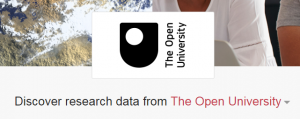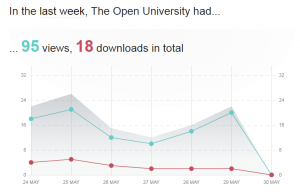If you are publishing research articles and are funded by UKRI you need to be aware that there are changes to the Open Access policy from 1 April 2022.
The new policy requires immediate open access for research articles and conference proceedings that acknowledge UKRI funding from AHRC, BBSRC, EPSRC, ESRC, MRC, NERC, STFC, Innovate UK or Research England submitted for publication on or after 1 April 2022. This can be achieved by 2 routes:
-
- Route one: publish the article open access in a journal or publishing platform. The version of record (final published version) must be immediately open access via its website with a Creative Commons attribution (CC BY) licence. Funds for Gold Open Access may be available from the University’s UKRI Open Access Block Grant. The Library has been taking out Journal Transitional Agreements with Jisc that include gold open access publishing in them.
- Route two: publish the article in a subscription journal and deposit the Author’s Accepted Manuscript (AAM) (or Version of Record, where the publisher permits) at the time of publication in an institutional or subject repository with a CC BY license. A publisher embargo period is not permitted.
The policy also requires a Data Access Statement on research articles, even where there are no data associated with the article or the data are inaccessible
It is important that any UKRI funded researchers check before article submission that the journal they are submitting to is compliant with the UKRI Open Access Policy.
The policy has also been widened to include monographs, book chapters and edited collections published on or after 1 January 2024 and requires:
- the final version of a publication or the author’s accepted manuscript (AAM) being made open access via an online publication platform, publishers’ website, or institutional or subject repository within a maximum of 12 months of publication.
- CC BY licence is preferred to maximise opportunities for sharing and reuse. The open access version should include, where possible, any images, illustrations, tables and other supporting content.
UKRI will be providing dedicated funding to support open access monographs, book chapters and edited collections. Funding will be via a centralised fund held by UKRI that must be applied for by authors. Publication costs for monographs, book chapters and edited collections can also continue to be included in research grant applications. UKRI will provide updated guidance by the end of 2022.
Further details can be found on the Library Research Support website and the full policy can be found here along with a list of frequently asked questions.
The Library Research Support Team will be running two briefing sessions in Microsoft Teams (please note these will not be recorded):
10-11am Tuesday 5th April 2022. Book here.
3:30-4:30pm Thursday 7th April 2022. Book here.
For help and advice, please contact library-research-support@open.ac.uk.






